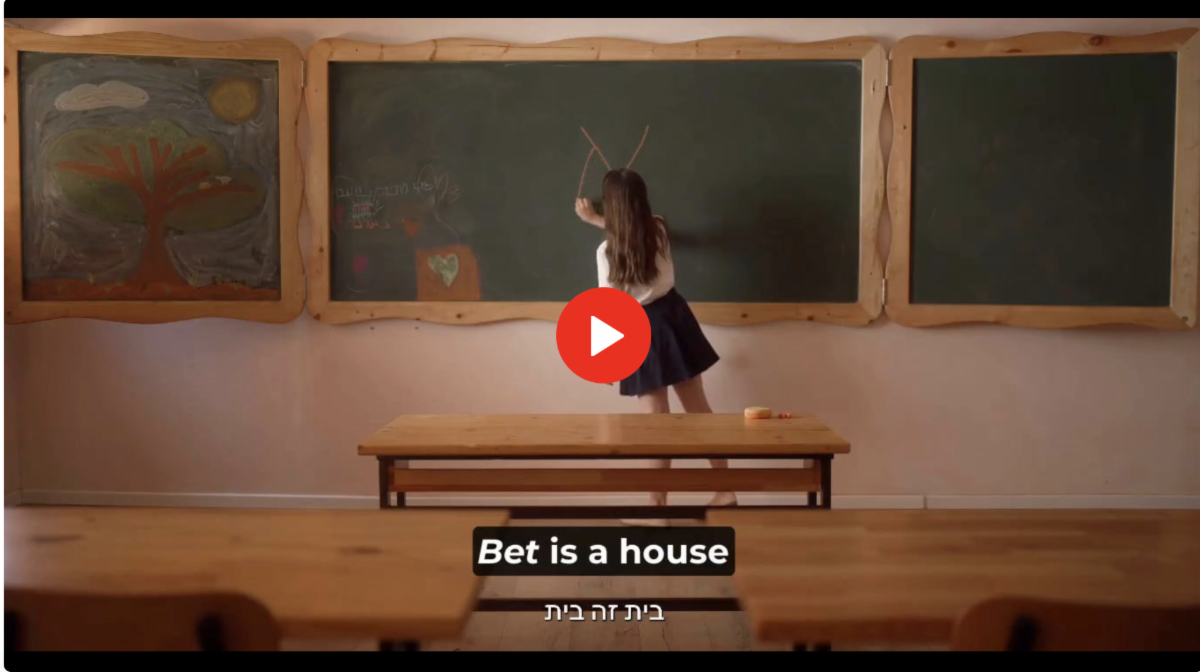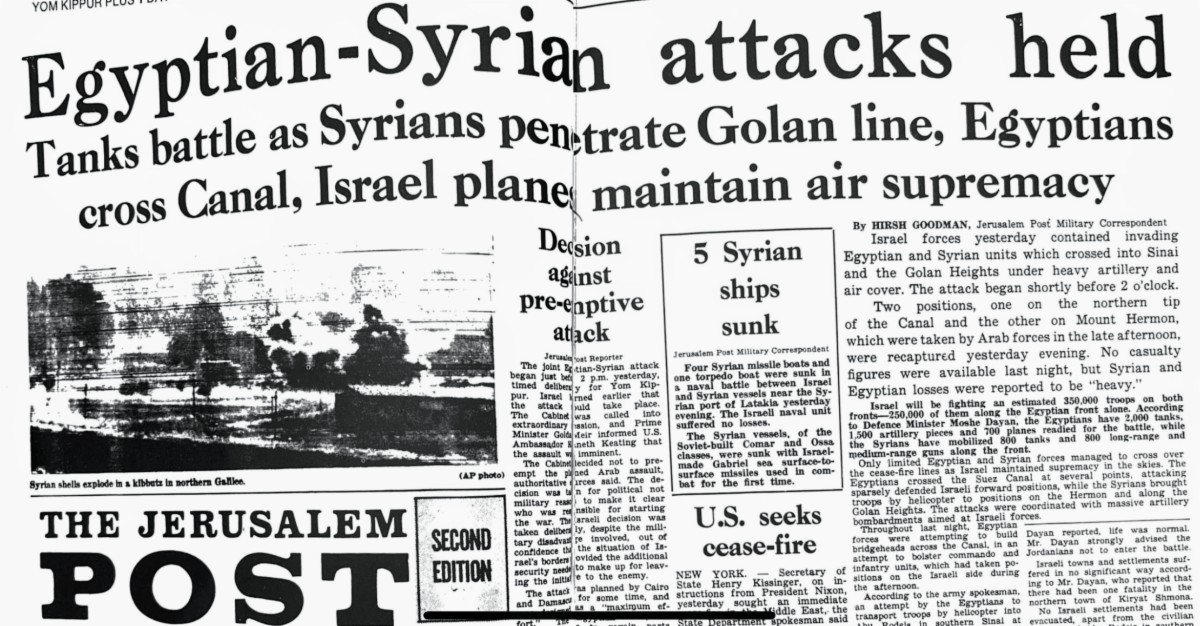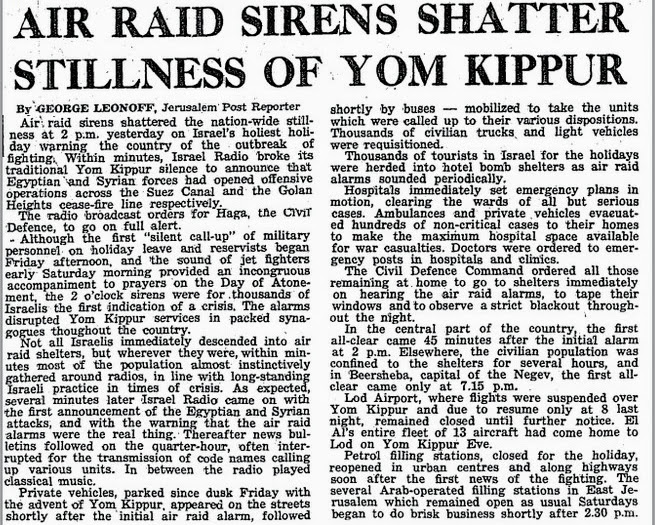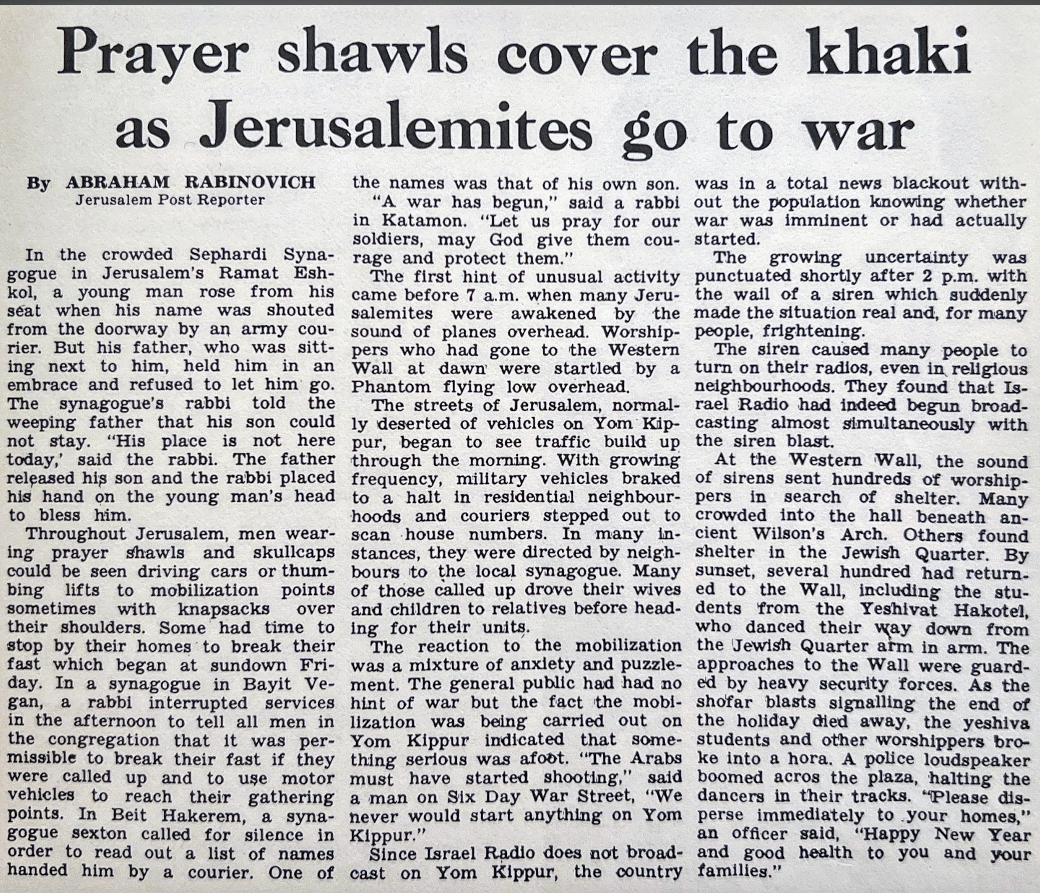The headline says, "Welcome Youngest Grade!" Rise and Succeed! 180,000 children are starting their exciting journey today!
In This Moment |
As in Stamford, Israeli schools opened this week. Daniel Gordis, who has been bringing insight into the landmark Israeli democracy protests to diaspora audiences over the past several months. HIs latest posting celebrates the new school year and the democracy protests with a subtitled, rewritten mashup of Naomi Shemer's famous Alef-Bet song with Zemer Noga (Hatishma Koli) With key Supreme Court hearings set to begin, it is incumbent on us to understand what's at stake - and to support democracy in the Jewish state. As Gordis describes, the creators "took two songs everyone in Israel knows, and used them to remind teachers, parents and everyone else of an equally important, and different, set of concepts." Gordis also appears in a podcast of the Times of Israel this week, along with Yossi Klein Halevi and Matti Friedman, all center-right Israelis who oppose the judicial coup. Gordis said in the panel discussion, "If diaspora Jews do not respond to the challenge, we can no longer call ourselves one people.” He urged his audience to ask themselves how they will respond ‘when your children and grandchildren years from now ask ‘how could you remain silent?’” |
 |
And here's a news flash from this morning, with a reminder that when a would-be dictator reveals his plans, we'd best believe him. Time to strap in. Next week's Supreme Court session will likely be epoch-defining. The warning signs are clear for all to see - just as they were 50 years ago, on the eve of Yom Kippur.
- Prime Minister Benjamin Netanyahu on Thursday shared on social media a speech by Knesset Speaker Amir Ohana from a day earlier, in which Ohana suggested the coalition may not accept a High Court of Justice ruling next week if it strikes down a recently passed controversial law amendment. (Times of Israel)
|
50 Years Ago TBE Finds a New Home While the Jewish Homeland Fights for Survival |
The two epic events were interconnected a half century ago. When TBE was opened on Roxbury Rd., among first major events to be held in the new building was a large community rally on behalf of Israel. Below you'll find photos recording the day when the Torahs were brought to the new place, and below that articles from the Jerusalem Post describing the shock felt by Israelis shedding their tallises and taking up arms on our holiest day. On Shabbat morning, we'll hear from TBE members who were part of that historic time. |
Golda and the 50th Anniversary of the Yom Kippur War |
 |
 |
 |
- Read a speech by Elie Wiesel, "Against Despair" delivered to a UJA conference on Dec. 8, 1973. It perfectly captures the mindset of Jews in the wake of that traumatic war: "Never before have Jews been so organically linked to one another," he said. "Shout here and you will be heard in Kiev. Shout in Kiev and you will be heard in Paris. When Jews are sad in Jerusalem, we are moved to tears everywhere. Thus a Jew lives in more than one place, in more than one era, on more than one level."
Reflections on Golda
I had the chance to see the new film Golda last week and recommend it highly. Helen Mirren transformed herself into the former Prime Minister, capturing her full spirit as no one has done before. The film also captures the existential terror felt by Israelis as the Yom Kippur War began to unfold, along with the hubris that led to the war in the first place. Israel failed to heed the warning signs (the film partially exonerates Golda by revealing that some of those early warning systems did not function properly). But when there was a chance to head off the conflict with diplomacy, it was Golda herself who missed the opportunity. The shadow of 20th century Jewish calamities - Holocaust, pogroms, wars, terrorism, all of which Golda witnessed, contributed to a national PTSD that failed to recognize a genuine peacemaker when it presented itself in the form of Anwar Sadat.
Eric Alterman's new book, We Are Not One, a flawed but interesting analysis that Israel supporters should read (even as they will disagree with much of it), highlights the dangerous game played by Henry Kissinger prior to the war, something the film only touches upon. Alterman writes that according to Sadat's memoirs, "Kissinger actually encouraged the attack, via secret messages, in order to improve Egypt's negotiating position in the war's aftermath." This after Kissinger warned Israel strongly not to engage in a preemptive strike. According to Alterman, Kissinger also resisted sending the massive airlift to assist Israel, a recommendation that Nixon fortunately overruled. (Yes, you saw me connect the words "Nixon" and "fortunately.") He wanted Israel to stew in its brush with death, as if the Jewish people needed even more trauma.
And once Israel turned the tide, Kissinger prevented the Israelis from achieving the complete victory they had earned. As it turned out, in this matter Kissinger was right, since Sadat, having won back his country's honor, was then able to forge a peace agreement with Israel a few years later - an agreement that endures to this day.
Through it all, the figure of Golda, so revered and reviled, is given a massive makeover. This Iron Lady. who Israelis have joked over the decades as "the only one in the cabinet with balls," is portrayed here as one of the most empathic leaders ever seen on a screen, grieving over every single battlefield death. And while not a single wartime killing is seen on the screen - this is a bloodless war movie - a number are heard, using actual transmissions of soldiers in the fight, and those scenes are among the most powerful depictions of war that you will ever witness. Imagine the first scenes of Saving Private Ryan, but where the horrors of Omaha Beach are only heard - and the rest is left to the imagination. You cry with Golda, and for her.
American Jews always identified with Golda as one of us, not just because she came from Milwaukee and Denver, but because she came from the Ukraine of the Czars, just like so many of our forbears did. She understood the sounds of the marauding Cossacks outside the door. She was a quintessential diaspora Jew, transformed into the fighting Israeli - but never losing touch with the suffering of her people. |
Her line to Kissinger, who claimed to be a Jew only as his third highest priority, to which she replied "In Israel we read from right to left," was inserted into the script at the recommendation of Kissinger himself, according to Liev Schreiber, who plays him (superbly). The director, Guy Nattiv, revealed this in a recent interview on JBS.
So forget Barbenheimer. Go out and see Goldenheimer, and trade in your Barbie dolls for a Golda figurine. The two films, Golda and Oppenheimer, are perfect bookends and warnings about the consequences of living in the shadow of a possible nuclear armageddon - showing one war where nuclear weapons were used and another where they almost were. The films both discuss how it takes the right people to know how far to go in wielding immense power, and at the same time how to cherish every life, be they soldier or civilian. Both are inherently Jewish films, in that they dwell less on the consequences of brute force than the redeeming power of conscience. |
 |
The letter above appeared in the Jerusalem Post a few months after the war. Its call for unity for the sake of those who made the supreme sacrifice is as relevant to day as it was then. I've enlarged the last part - see below - to make sure you can read it. |
|
Rosh Hashanah card from Poland, early 20th century: The postcard shows a young woman flying an early aircraft in the sky. The woman holds in her hand a bouquet of flowers with a greeting card attached to it (from the National Library of Israel).
Below is a reading from AJWS. Click here for additional materials |
|
- The Ballad of Golda Meir and David Ben-Gurion (NLI) - She was “just a girl from Milwaukee” when he was already the famous “Ben-Gurion.” He was a few steps ahead of her throughout their public and political careers. Still, Golda Meir and David Ben-Gurion formed a delicate and meaningful friendship, which ended suddenly due to an ugly political scandal. After years of detachment, towards the end of his life, Ben-Gurion tried to reconcile with her. Did it work?
- Why carrying Narcan is a mitzvah (Forward- Jay Michaelson) - This week, America took an important step forward in the fight against the deadly opioid crisis, which kills over 100,000 people per year: Narcan, which can save the life of someone who has overdosed on opioids, is soon to be available over the counter. This step has been a long time coming. Narcan, a nasal-spray version of the drug naloxone, essentially blocks the effects of opioids on the brain and can help pull someone out of an overdose that could kill them within minutes. For years, every EMT and drug treatment facility has had naloxone on hand, but the truth is, we should all have it in our medicine cabinets. We’re living in a horrifying new reality in which lethal quantities of fentanyl — an opioid 100 times more powerful than morphine — can be found in substances posing not only as ketamine and cocaine, but as oxycodone and Xanax as well.
- What Really Happens When Americans Stop Going to Church (Atlantic) - In fact, people become even more entrenched in their political views when they stop attending services. Though churches have a reputation in some circles as promoting hyper-politicization, they can be depolarizing institutions. Being part of a religious community often forces people to get along with others—including others with different political views—and it may channel people’s efforts into charitable work or forms of community outreach that have little to do with politics. Leaving the community removes those moderating forces, opening the door to extremism.
- Leonard Cohen's song, "Who By Fire," an adaptation of the Unetane Tokef prayer, which was released a year after the Yom Kippur War, is featured at the end of the film Golda.
|
|
And who by fire, who by water Who in the sunshine, who in the night time Who by high ordeal, who by common trial Who in your merry merry month of May Who by very slow decay And who shall I say is calling? And who in her lonely slip, who by barbiturate Who in these realms of love, who by something blunt And who by avalanche, who by powder Who for his greed, who for his hunger And who shall I say is calling? And who by brave assent, who by accident Who in solitude, who in this mirror Who by his lady's command, who by his own hand Who in mortal chains, who in power And who shall I say is calling? And who shall I say is calling? And who by fire who by water Who in the sunshine, who in the night time Who by high ordeal, who by common trial Who in your merry merry month of May Who by very slow decay And who shall I say is calling? And who shall I say is calling?
|
|
Temple Beth El 350 Roxbury Road Stamford, Connecticut 06902 A Conservative, Inclusive, Spiritual Community |
|
|
|
|
No comments:
Post a Comment